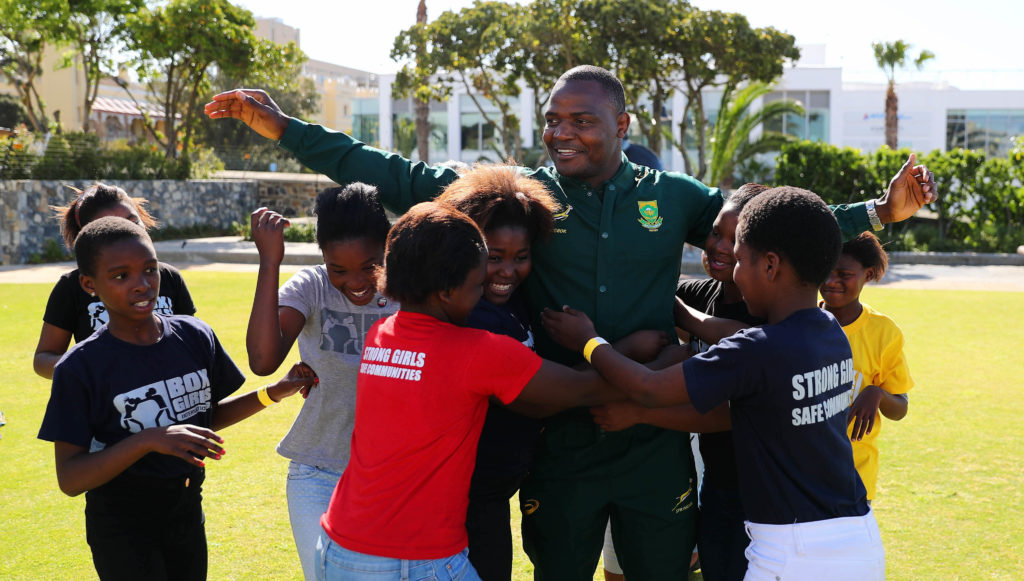Chiliboy Ralepelle the player is done. Chiliboy Ralepelle the man has a shot at redemption, writes RYAN VREDE in the latest SA Rugby magazine.
READ: What’s in our latest issue?
I write this story because Chiliboy Ralepelle’s black life matters.
I write this column in the wake of him being handed an eight-year ban after a positive test for an anabolic steroid. It is his third such offence, albeit the first was determined to be a ‘no-fault’ and resulted in a reprimand.
His career is over and he has to take ownership of that. Ralepelle does believe he has grounds for an appeal that would reduce the ban from eight years to four, but he is 33 years old. In a best-case scenario, he would be 37 when the ban ends. His career is over.
Ralepelle surrendered any chance he had at a sympathetic ear from rugby’s fraternity with the second positive test. Most South Africans are understanding and slow to anger, especially when their sports heroes and heroines are involved. Had he admitted guilt and remedied his behaviour after the second conviction, Ralepelle could have gone on and rid himself of the stigma of a drug cheat. Instead he chose to deny it happened, defying medical science and the testing process.
That science and testing process wasn’t wrong the first time, it was simply deemed that Ralepelle had unwittingly used Bok-approved supplements containing a banned substance. Perhaps the first ‘no-fault’ determination steeled his resolve the second time around. But the science wasn’t wrong then, and it isn’t wrong this time.
Asked for comment on the ban, Ralepelle told Sibusiso Mjikeliso of Media24: ‘But that’s life. C’est la vie’. It is a French phrase used in English as idiom to express acceptance or resignation. But that isn’t life, Chiliboy. It is the life you made it.
That Ralepelle would deliver this misguided assessment of his ‘life’ to a black journalist stings more because he was meant to be what Siya Kolisi is today, a symbol of black excellence and a reference point for young black men and women with a dream and the talent and temperament to turn that dream into a reality. Instead he will be remembered as a cautionary tale.
That’s why this black life matters.
Despite all his failings I feel for Ralepelle. I doubt anyone in my profession took a more keen interest in the kid from Tzaneen and tracked his career more closely. I was proud to watch him become the first black player and youngest to captain the Springboks against the World XI in Leicester in 2006. And I was devastated to watch him being treated like a political pawn for much of his Test career.
In an ideal world we develop the coping mechanisms to avoid becoming victims of circumstance. But we’re imperfect in an imperfect world and I fear Ralepelle’s experience of professional rugby at the time broke him irreparably in a professional context.
I hope it didn’t break the man. The man has a critical role to play in South African rugby. If Ralepelle can take ownership of his mistakes, he can become a guiding light for the likes of Aphiwe Dyantyi, the potent Springbok wing facing a drugs ban, and, more importantly, young black players entering the professional ranks who are vulnerable to following the path Ralepelle did.
That is Ralepelle’s road to redemption. But it starts with being honest with himself. Of all the people whose belief and trust he betrayed with these decisions, he hurt none more than himself.





